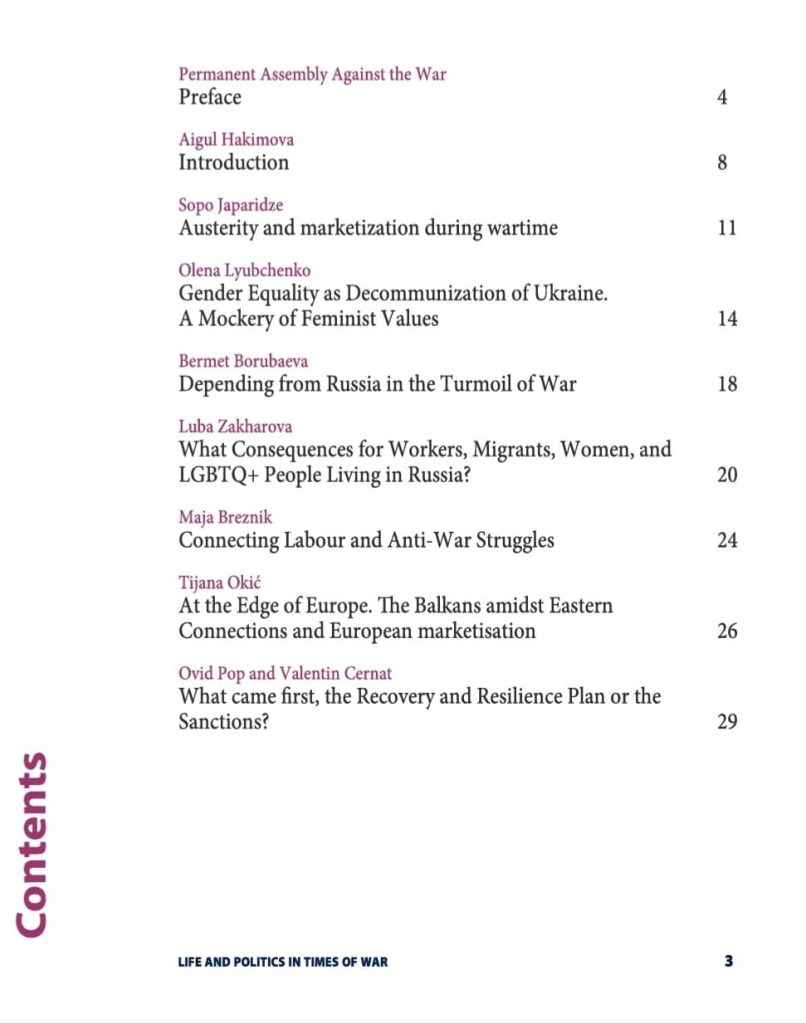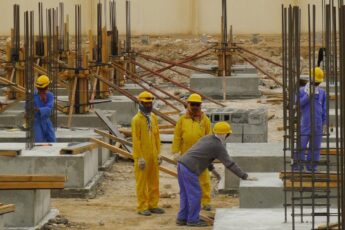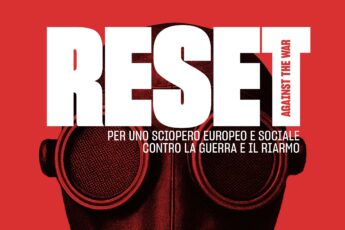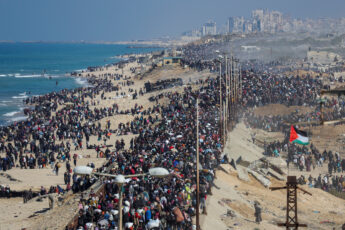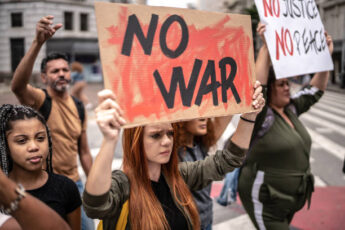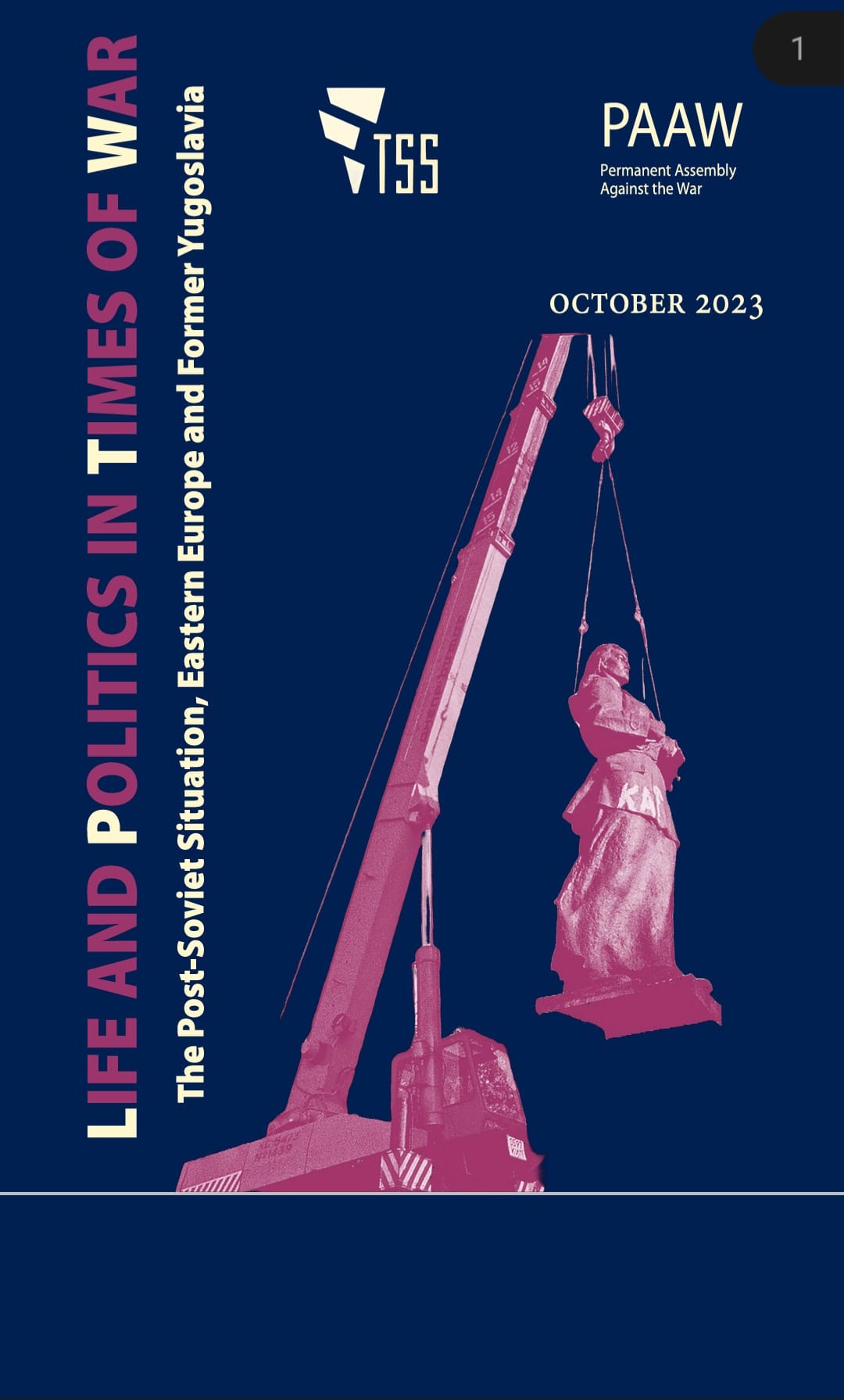
by PERMANENT ASSEMBLY AGAINST THE WAR
What follows is the collection of the initial contributions which animated the assembly Life and Politics in times of War. The Post-Soviet Situation, Eastern Europe and Former Yugoslavia organized by the Permanent Assembly Against the War on June 4th, 2023. Women, workers, unionists, artists, organizers, activists, migrants and queer people coming mostly from East—Serbia, Bosnia, Ukraine, Russia, Georgia, Slovenia, Kyrgyzstan, Romania—but also from France, Italy, Germany, Mali, Palestine, Canada and more, animated a discussion on the effects of the war in Ukraine in Post-Soviet, Eastern Europe and Former Yugoslavia countries.
As the Permanent Assembly stated since the beginning: we need to shift the perspective on this war, if we don’t want to be trapped in its deadly logic. We need to fight against the war for the tremendous effects it has particularly on workers, women, migrants, well beyond Ukraine. The political focus on post-soviet and post-socialist experiences emerged from within the process of the Permanent Assembly as an urgent necessity. In fact, the polarization between East and West exacerbated by the war in Ukraine, the definition of the war in Ukraine as a decolonising war, the language of imperialism which establishes an uninterrupted historical continuity from the Tzar-era to the Putin-present, passing through the USSR, are increasingly erasing what is at stake in this war for women, workers, migrants, queer people, and to what extent what is happening in the Post-Soviet and post-socialist contexts concerns all of us. Seen from this stance, it is manifest that the war has accelerated processes of decommunisation, neoliberalisation and ideological suppression of the memory and aspiration to any political alternative to the existing state of being, while imposing nationalistic readings that erase all social struggle within each nation.
The war is paving the way for new opportunities of accumulation, whose hidden face is the radical reduction, when not elimination, of social expenditure. This is prescribed by the agreement between the Ukrainian government and the IMF, but involves all countries, committed to strengthen rearmament spending and anti-workers laws, while Soviet-era infrastructures are being used as a leverage for implementing new plans for investments. In Russia, the pressing necessities of the war are used by the government to increase the internal repression against women, workers, unions and LGBTQI people who in different ways oppose the war and the increase in exploitation and patriarchal and racist regimentation it requires. The war situation becomes also a way to push back from achievements made by social movements in the past and set aside environmental and social issues, such as in the attempt to reinvest in nuclear plant made by the government in Kyrgyzstan, against a moratory for nuclear energy imposed by local activists.Moving across the post-soviet and former socialist spaces made it possible to discuss transnational elements in the present situation beyond a geopolitical or regional approach. When seen from the experiences of impoverishment and struggle of this part of the world the European Union appears very different from the champion of democracy confronting the oriental barbarianism.
In countries such as Romania and Slovenia, just like in other EU countries, the war provided the opportunity to change the destination of the European Recovery and Resilience Facility (ERRF), triggering fast mechanisms of production for military infrastructure, and neoliberal State policies. This is even cleared after the vote in favor of ASAP—Act in Support of Ammunition Production—a provision that allows member states to spend for arms production (for the war in Ukraine but not exclusively) also money that originally could be allocated for social expenditures.
The EU, however, does not affect only its Member States: as contributions from Georgia and Bosnia made clear, the ideology of European democracy and rule of law is operating also there where an integration process is active. Albeit the prospect of membership remains suspended, this ideology is mobilized as a way to legitimize neoliberal capital unleashed activity as the only available alternative to economic, social and political “backwardness”, that is, as the only way out of poverty and the specter of socialist economy.
What this ideology conceals, though, is that poverty has been produced precisely by the neoliberalizing policies ensuing from the end of the Soviet and Yugoslavian experience; by the equation of communism and fascism aiming to erase from historical memory and political imagination the emancipative and modernizing effects of the soviet and socialist past; by the legitimation of far-right organizations that are responsible of violent attacks against queer people; and by the reinforcement of nationalism as the only form of alleged political opposition to austerity policies.
Looking at the present state of affairs from the point of view of former Soviet and socialist countries in Eastern Europe and the Balkans, we can see as well that behind the promise of integration within the European economic civilization, differences and hierarchies are continually produced and reproduced. One example is the way the Balkans become the trash-bin of EU countries and production chains who are “going green”.
We see that, notwithstanding the various promises associated with European integration, Europe is not the solution, but rather part of the problem, as we have already stated in the Manifesto for a Transnational Politics of Peace right after the outbreak of the war in Ukraine.
As all previous meetings of the Permanent Assembly against the War—both online and in presence, such as those in Sofia and Frankfurt within the gatherings organized by the Transnational Social Strike Platform— the event Life and Politics in Times of War provided a unique space where disagreements can be faced without fear and differences can be put in communication and connected in the common effort of building together a shared discourse and the conditions for an effective transnational political initiative.
As a result of this encounter, we agreed that establishing a continuous exchange between post-Soviet and former Yugoslavian countries is crucial for strengthening our common politics. We further agreed that, if it is true that the EU is part of the problem, neither an exclusively Eastern, nor an exclusively Western initiative against the war and its effects of fragmentation, neoliberalization and impoverishment of our work and lives are up to the present condition.
For the PAAW, focusing on the ‘Eastern’ difference and discussing its relevance for all of us is a move to help bridge the divide between the East and the West, against the campist ideology of war and the hegemonic grasp of the EU. Beyond the war fought by States, by the Atlantic and the Asian fronts, by capitals in search for valorization, we have a class war to fight by connecting workers, women, migrants and LGBTQI people across divisions imposed upon them. In doing this, we need recognize and tackle the different conditions that compose today’s transnational working class.
The Permanent Assembly Against the War is making the speeches available to the public in the days leading up to the meeting Breaking the Barrier: Confronting the Transnational Dimension, organized by the Transnational Social Strike Platform in Bologna (Oct. 27-29). These interventions give a unique grasp of the world dimension of the war that began in February 2022. Understanding the transition period after the collapse of the USSR is crucial to understand the background of this war and the condition in which both Russia and Ukraine are immersed. It is also a way to contribute to a better understanding of the political stakes and struggles that are often hidden behind the chronicles of war and geopolitical rivalries.
As pointed out by one participant in the event, “by highlighting the point of disintegration and the literally horrible devastation after the collapse, we, the children of that time, saw what is now called neoliberal democracy, shock therapy and radical nationalisms grow before our eyes. Today, as adults, we can look back and see the very elements that led to this war”.
This war is not just a geopolitical game, it is also the culmination of the processes that have led each nation-state to be integrated into a transnational landscape ruled by game of powers and capitalist accumulation. With this publication we want to give voice to alternative visions of these processes and contribute to the major task of building a transnational politics peace.
